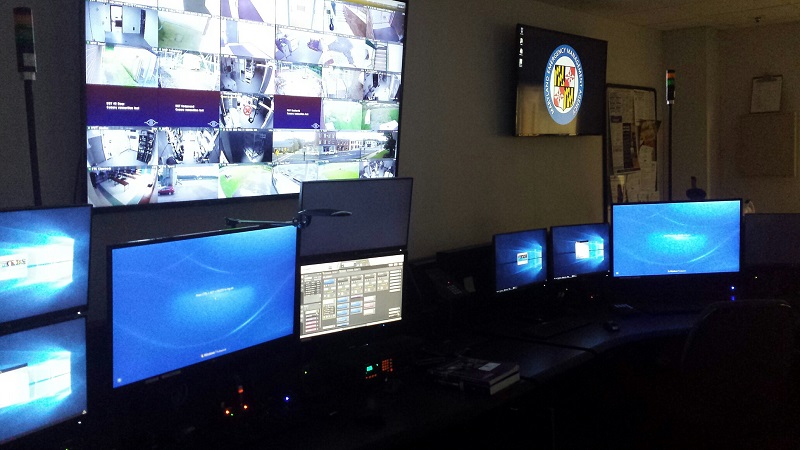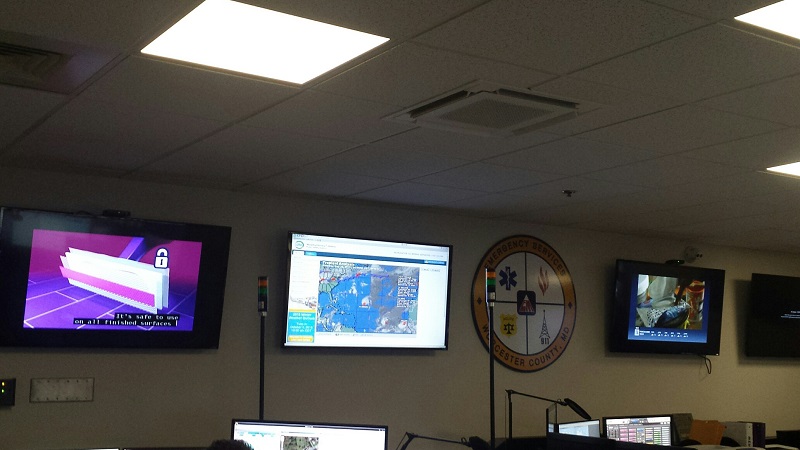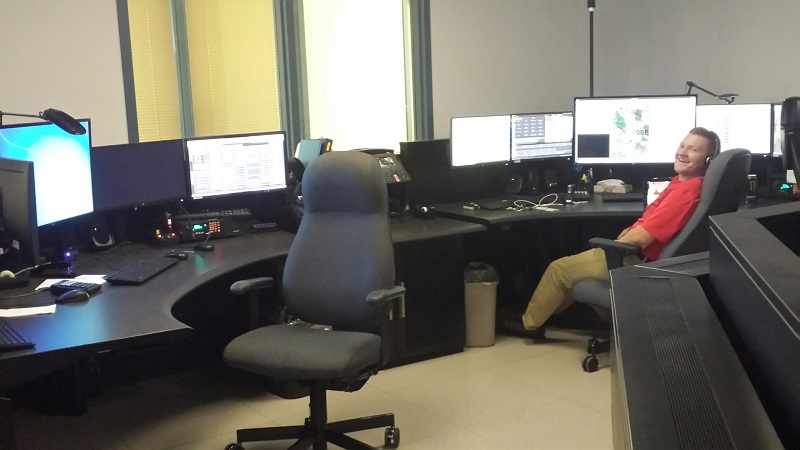911 Records Request
Download the below PDF and open it in a PDF viewing program (i.e. Adobe Acrobat, Sumatra, Reader, etc.). By filling out the form and clicking the Submit Form button at the bottom of the document it will prompt you to choose your email program and will automatically create an email to the 911 Records team with the attached form. They will review your submission and be in contact with you.
Employment
The Worcester County Emergency Services department periodically has openings for Communications Clerk Trainees. The process starts with a three hour written exam designed to test the applicant's ability to make good judgment decisions, take detailed written notes and dispatch closest appropriate units. Once the tests have been scored, interviews are set. Candidates are screened on their speaking ability, attitude and overall personal presentation. Those offered employment, who accepts, must also undergo a criminal background check and drug and alcohol testing.
The new applicant must be willing to work any shift assigned, which will include nights, weekends and holidays. Applicants are also made aware that since this is a critical part of public safety to the citizens of Worcester County they are required to report to work when other county offices may be closed due to weather or other extreme conditions. They are also subject to call back due to shift shortages or extreme workload in the dispatch center.
All Communications Clerks begin their career with 3-weeks of training with the Communications Center Manager. This time is spent becoming acclimated to the department's Standard Operating Procedures, Computer Aided Dispatch (CAD) system, Verizon Vesta telephone equipment, county geography and roads. Once assigned to a shift the Communications Clerk Trainee will work under the direct supervision of a Shift Training Officer. During the probationary period (18-months) the Trainee must also attend, and pass, training as a Maryland/National Academy of Emergency Dispatch (NAED) Emergency Telecommunicator, and the NAED Emergency Medical Dispatch (EMD), Emergency Fire Dispatch (EFD), and Emergency Police Dispatch (EPD). The Trainee must also attend and pass a class presented by the Criminal Justice Information System (CJIS) and Maryland Interagency Law Enforcement System (MILES) that trains them on accessing criminal history and motor vehicle files.
Although a stressful job, there is a relatively low turnover rate within the department. Applications are accepted when advertised. To check for Communications Clerk or other county job offerings check the Worcester County Human Resources page.
History
The Worcester County Public Safety Answering Point (911 Center) is located in Room 1002 of the Worcester County Government Center in Snow Hill, the County Seat. It is a combination of the 911 Center and the Emergency Management Agency for Worcester County.
In July of 1985, the State of Maryland mandated that each county in the state of Maryland have a Public Safety Answering Point to receive 911 emergency calls.
The Worcester County Public Safety Answering Point is a multi faceted office with public safety the primary concern. The Communications Center receives the 911 calls for the entire county. It direct dispatches nine of ten fire companies and six of seven ambulance companies via a county wide radio system and utilizes the State EMS System. Along with the volunteer fire and ambulance companies the center has the responsibility for dispatching the Worcester County Fire Marshals Office and the Worcester County Medical Examiners. The Communications Center dispatches the Worcester County Sheriff's Department. and one local police department full time, (Snow Hill Police) and has the capabilities of dispatching other local police services upon request.
All Communication Clerks are trained in Fire / EMS dispatching as well as law enforcement communications. Clerks are required to undergo 24-hour classes in EMD (Emergency Medical Dispatch), EFD (Emergency Fire Dispatch) and EPD (Emergency Police Dispatch). These classes teach how to give pre-arrival instructions for all types of medical, fire and police emergencies prior to the arrival of units on the scene.
All clerks are required to attend a two-day class for certification on the NCIC (National Crime Information Center) computer. This certification allows the clerks to perform criminal history, warrant confirmations, license and registration checks. In addition clerks also enter missing persons and stolen property information for local law enforcement agencies.
Photos




